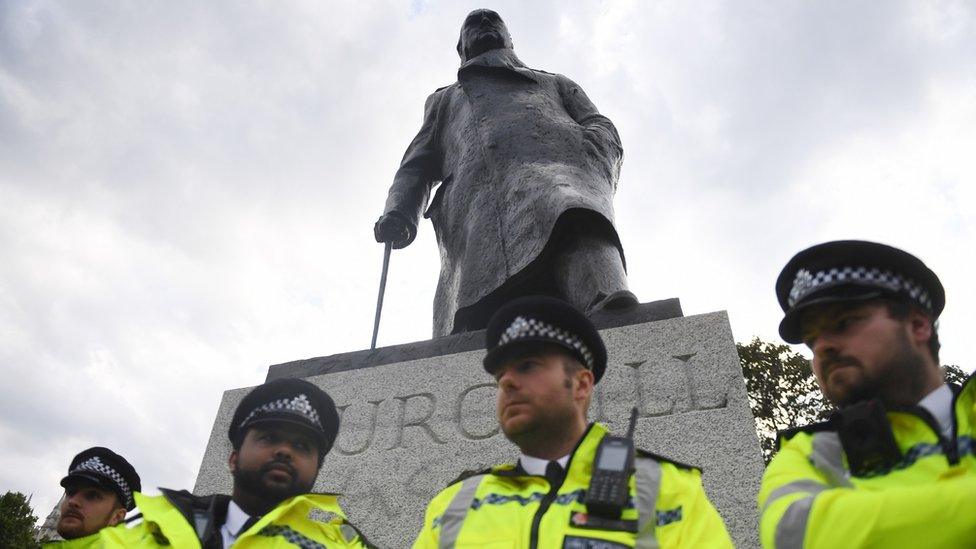Statues to get protection from 'baying mobs'
- Published
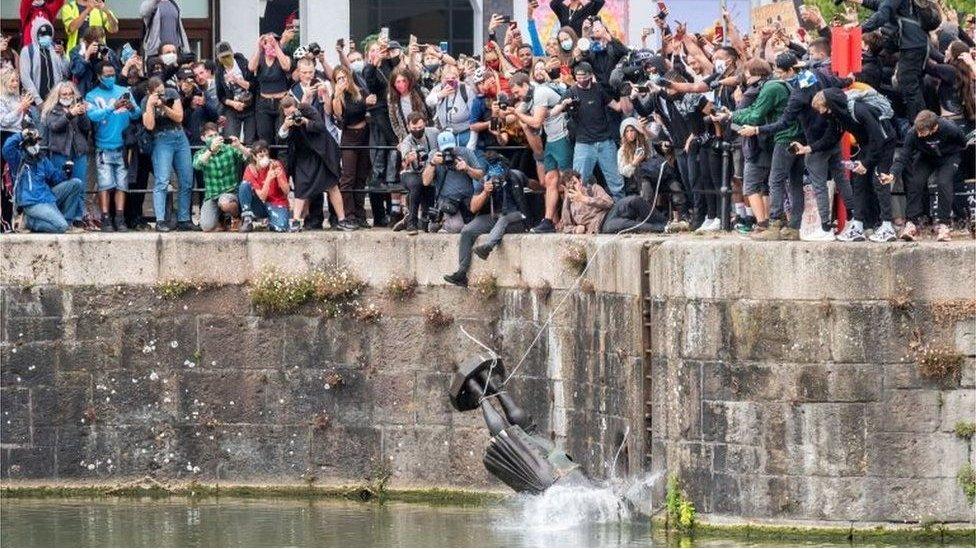
A statue of Edward Colston was thrown into Bristol Harbour last June, after being pulled down and rolled through the streets
The government is planning new laws to protect statues in England from being removed "on a whim or at the behest of a baying mob", Communities Secretary Robert Jenrick has said.
Writing in the Sunday Telegraph, external, he said generations-old monuments should be "considered thoughtfully".
The legislation would require planning permission for any changes and a minister would be given the final veto.
It will be revealed in Parliament on Monday.
The plans follow the toppling of a statue of slave trader Edward Colston last year and a wider discussion on the removal of controversial monuments.
Four people were later charged with criminal damage over the removal of the Colston statue, and six people accepted conditional cautions over their involvement.
In the paper, the communities secretary said Britain should not try to edit or censor its past.
Mr Jenrick said any decision to remove heritage assets in England would require planning permission and a consultation with local communities, adding that he wanted to see a "considered approach".
He wrote: "Our view will be set out in law, that such monuments are almost always best explained and contextualised, not taken and hidden away."
Mr Jenrick added that he had noticed an attempt to set a narrative which seeks to erase part of the nation's history, saying this was "at the hand of the flash mob, or by the decree of a 'cultural committee' of town hall militants and woke worthies".
He said: "We live in a country that believes in the rule of law, but when it comes to protecting our heritage, due process has been overridden. That can't be right.
"Local people should have the chance to be consulted whether a monument should stand or not.
"What has stood for generations should be considered thoughtfully, not removed on a whim or at the behest of a baying mob."
The Metropolitan Police say they are seeking to identify those responsible for the damage
The death of George Floyd while in the custody of police in Minneapolis sparked anti-racism protests across the world.
During largely peaceful demonstrations in the UK, the controversial Colston statue was dumped into Bristol Harbour and a memorial to Sir Winston Churchill was vandalised with the words "was a racist".
Speaking in June, Prime Minister Boris Johnson said: "The statue of Winston Churchill in Parliament Square is a permanent reminder of his achievement in saving this country - and the whole of Europe - from a fascist and racist tyranny.
"It is absurd and shameful that this national monument should ... be at risk of attack by violent protesters.
"Yes, he sometimes expressed opinions that were and are unacceptable to us today, but he was a hero, and he fully deserves his memorial."
'Dark past'
Colston made his fortune in the slave trade and bequeathed his money to charities in Bristol, which led to many venues, streets and landmarks bearing his name.
The Society of Merchant Venturers, the Bristol charity which runs institutions named after Edward Colston, said it was right that the statue was removed, along with other memorials to "a man who benefited from trading in human lives".
They said it was part of acknowledging Bristol's "dark past" and building "a city where racism and inequality no longer exist".
Following the toppling of the statue, Colston's Girls School changed its name to Montpelier High School and the city's Colston Hall music venue is now known as the Bristol Beacon.
A statue of a Black Lives Matter protester was placed on the empty plinth without permission in July and was removed shortly afterwards.
Related topics
- Published8 June 2020
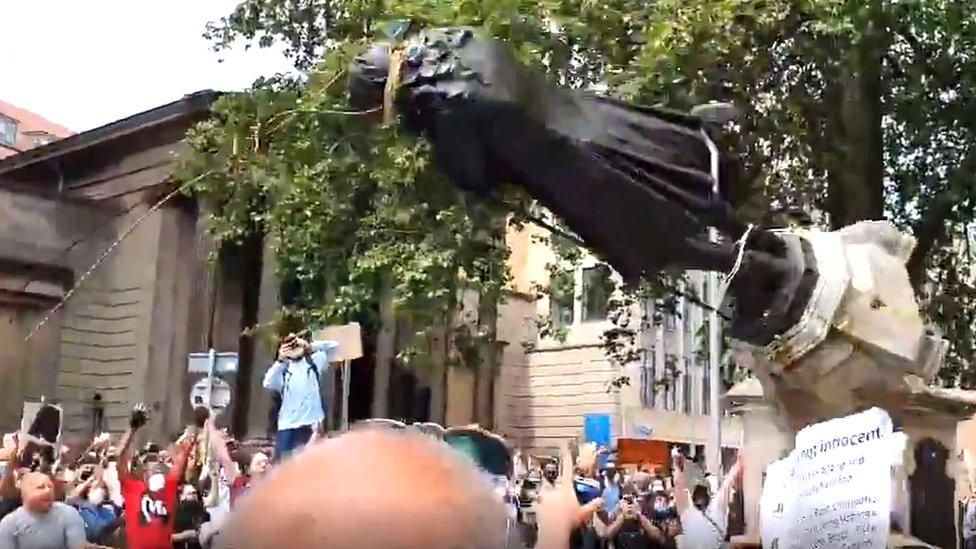
- Published9 December 2020
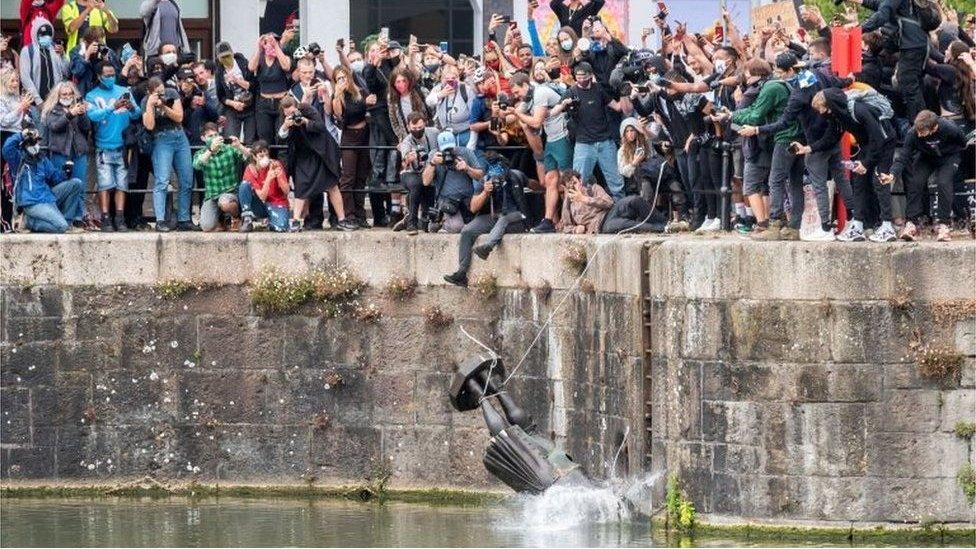
- Published16 July 2020
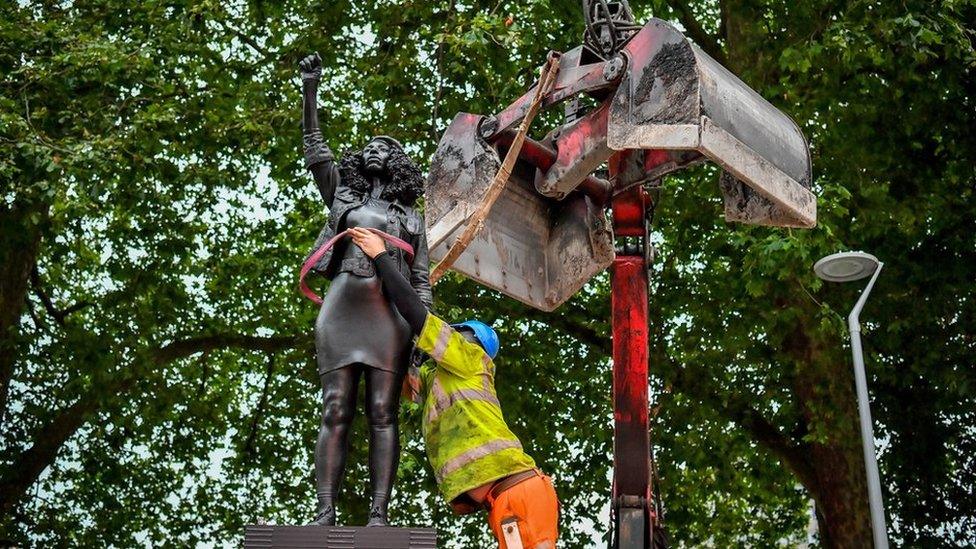
- Published8 June 2020
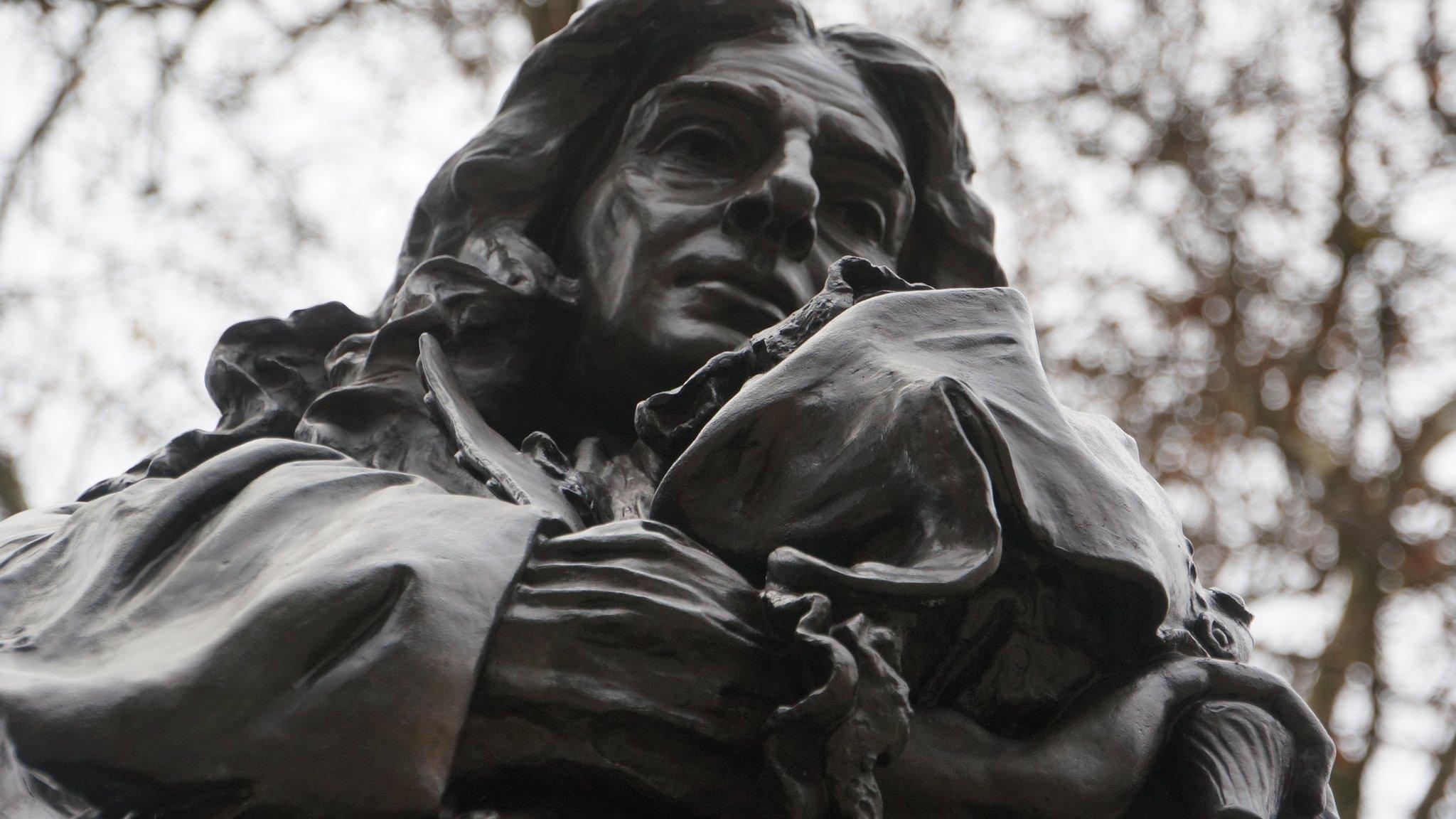
- Published8 June 2020
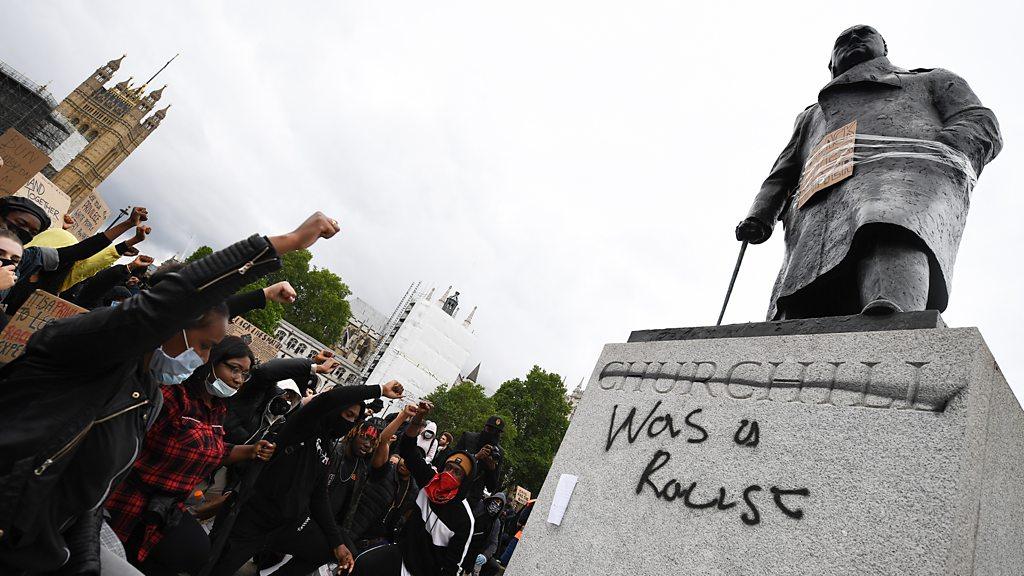
- Published13 June 2020
